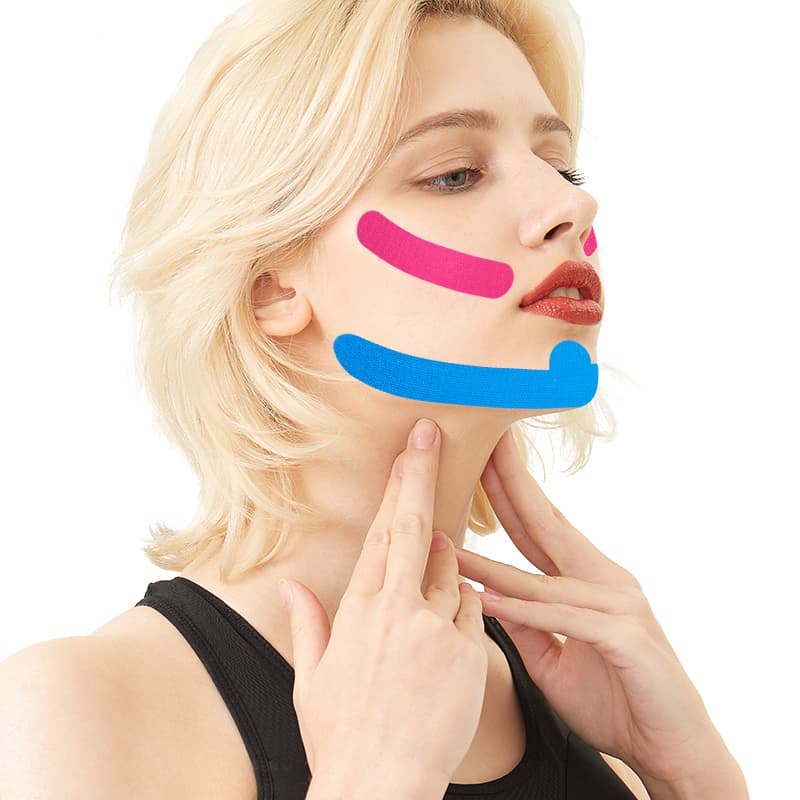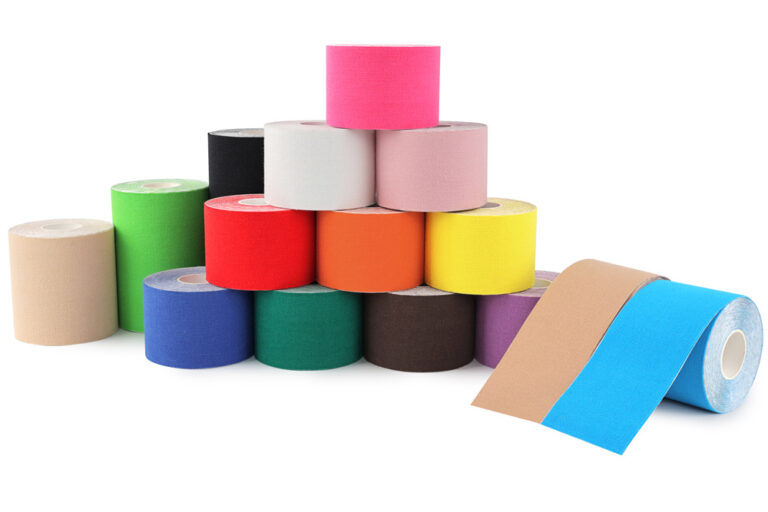Ergonomic tape work
Have you ever wondered how athletes actually prepare for competition? Those white athletic tape jobs with white athletic tape carefully shaped to help treat certain injuries are often tricky to work out.
That’s why we’re going to show you how to glue some of the easiest parts of your body in the easiest way possible.
If you need a reminder of the terminology we’ll be using in this simple tape guide, check out our How To Use Kinesiology Tape?
Wrap your lower back with white athletic tape
What you need: Three I-bars, two the same length and one shorter.
Strap job
Get into a seated position and bend forward as comfortably as possible.
Apply the first two lines vertically along the lower back, parallel to each other, from the base of the spine to the base of the ribs. When your back is fully extended, the two straps should have little to no extension.
Without changing the position of your back, apply the third tape horizontally to the two vertical tapes, targeting sore or sore spots in your lower back. Unlike the first two bars, there should be about a 50% moderate stretch in the middle area of the last bar. Remember that the anchor points on both ends of the tape stick to the skin without stretching.

Tie the knee with white athletic tape
What you need: one I peel into donuts, one short I peel.
Knee pads work
Sit down, raise your knees slightly, and place a cushion or pillow underneath.
Before creating the donut, measure the I-belt to make sure it covers the base of the patellar tendon just below the kneecap.
Once the donut shape is cut, place the first anchor point on the patellar tendon and open the donut shape on the kneecap so the top of it can be seen through the hole. This should apply a 50% stretch.
Apply the edges of the hole to the sides of the kneecap and continue with the rest of the tape covering the bottom of the quadriceps above the kneecap.
A shorter I-belt about 5 inches should then be applied horizontally under the kneecap, again stretched 50%.
Bandage the calf with white athletic tape
What you need: Two I strips of the same length.
Calf tape job
Put your feet behind you, stretch your calves, and keep your heels firmly on the ground.
Place the anchor point of the first piece of tape just above the top of the Achilles tendon on the back left and perform a 25% stretch on the right side of the calf muscle.
Do the same with the other band, but place the bottom anchor so that it overlaps the bottom anchor of the first band and apply it to the left side of the calf muscle.
wrap your neck with white athletic tape
You need: one Y bar, one I bar.
neckband job
Position yourself so that your neck is fully extended and your head is facing the floor.
With the anchor point of the Y-strap midway between the shoulder blades, extend the two tails straight up toward the neck without stretching, leaving a small gap between them.
For neck pain, apply the I-belt horizontally with full stretch.
If it’s easier, tear off the backing in the middle of the tape instead of the ends so the adhesive is exposed in the middle, but you can still hold the two anchor points – similar to how you apply plaster.
Tape your shin with white athletic tape
What you need: Three I strips, one longer and two shorter.
new tape work
From a seated position, keep your knees slightly bent, but extend your legs and ankles so your feet point down and away from your legs.
Apply the longer I vertically from the bottom of the shin to the top, stretching 50%. Make sure it covers the specific area of pain.
Now, focus more on the painful area. Take two shorter (about 5 inches long) I strips and place two horizontal lines above and below the pain area. They should be applied at 75% stretch.



